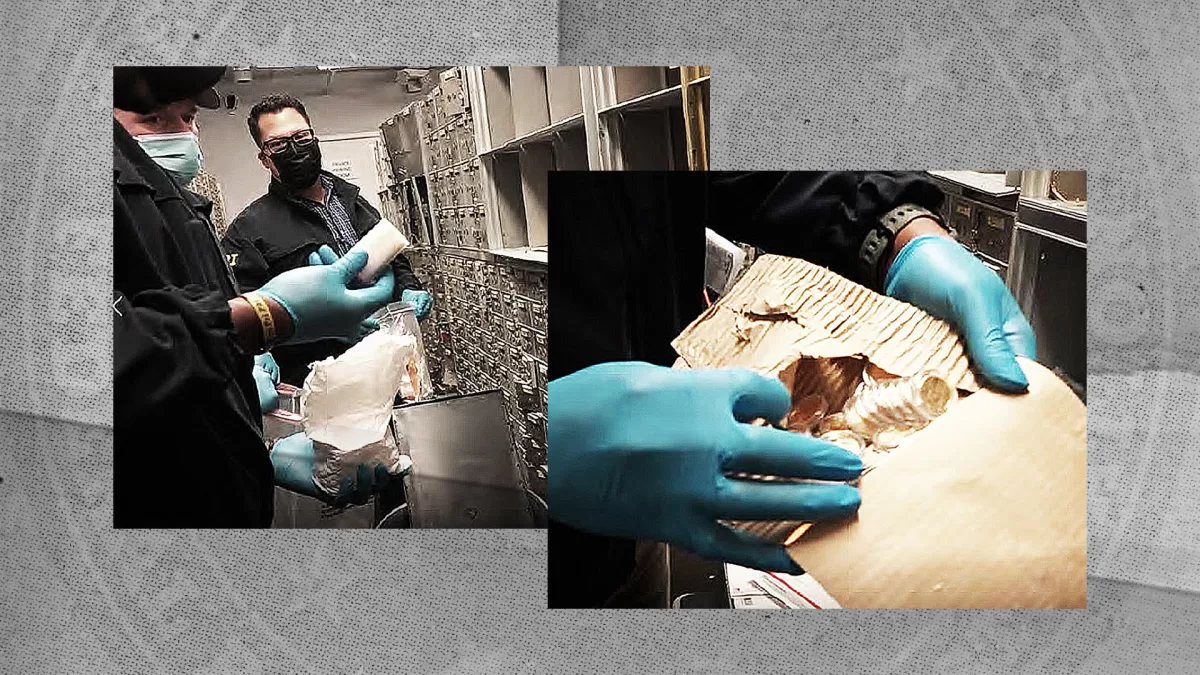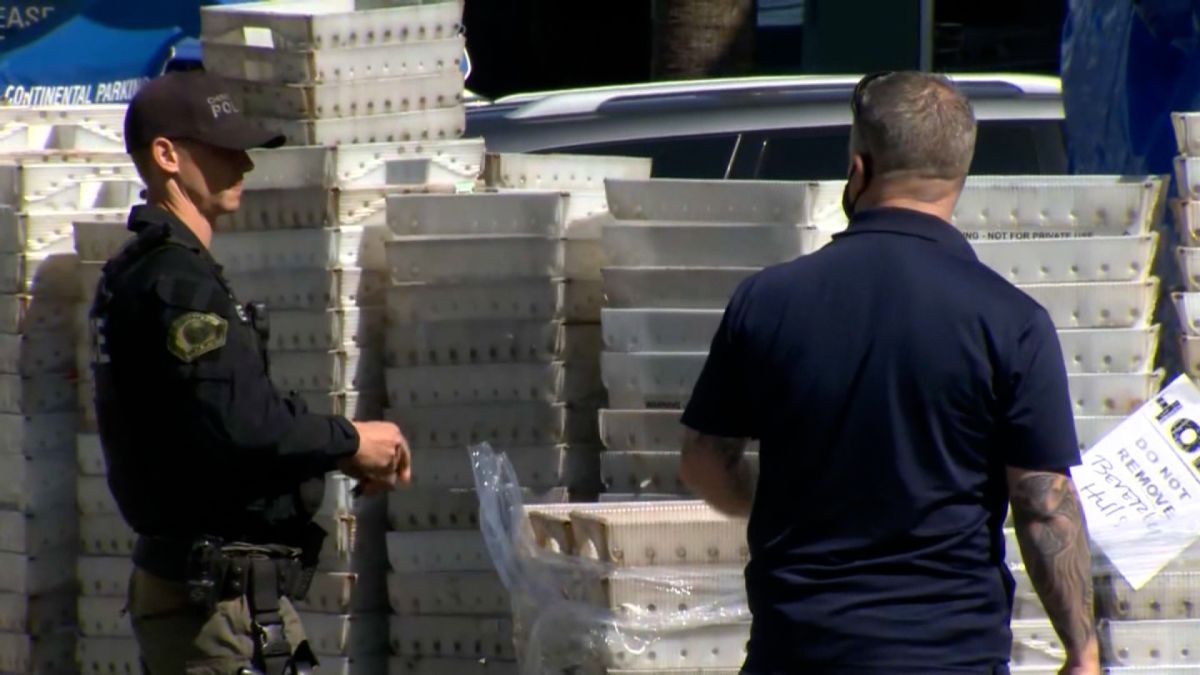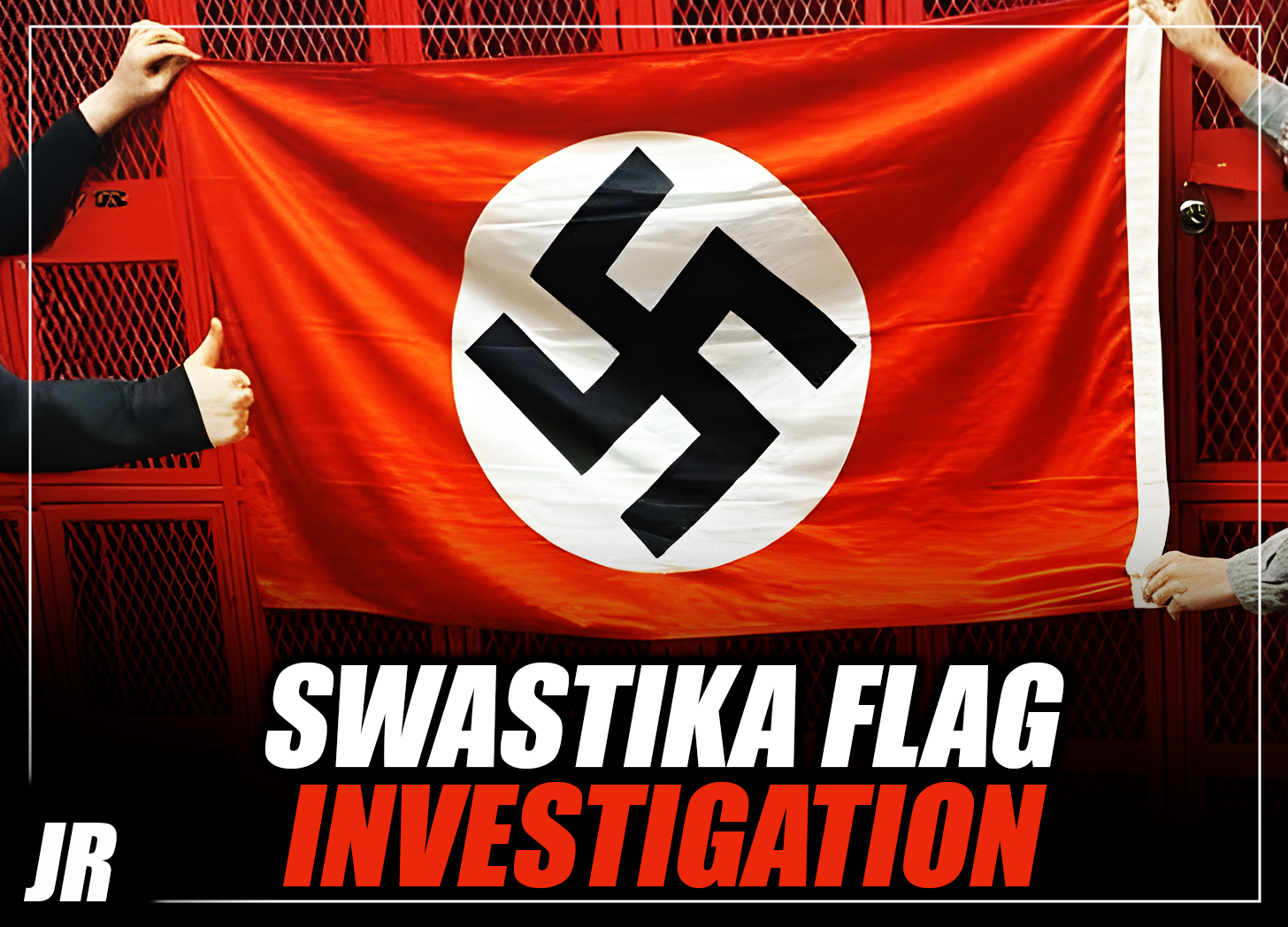Beverly Hills, California – A case involving the FBI’s controversial seizure of $86 million in bank vault contents is reaching federal courts this week.
The move, described as a “smash and grab” of valuables and other personal property, is expected to question whether or not the agency violated the 4th Amendment rights of dozens of alleged victims.
Federal judges at the Ninth Circuit Court of Appeals will convene this week to address a case involving an infamous 2021 FBI raid on U.S. Private Vaults. In March of that year, federal agents seized nearly 1,400 safe deposit boxes from a vault, initiating a dayslong search of the contents. While agents were initially tasked with documenting the items inside the boxes, agents allegedly took it one step further by confiscating valuable assets such as gold coins, luxury watches, family heirlooms, and substantial amounts of cash.

All of it, the case suggests, belonged to individuals who had not been charged with any crimes.
According to the warrant that authorized the raid, the scandal-laden FBI was instructed that the contents of safe deposit boxes were off-limits. Despite this, agents proceeded to confiscate valuables, leading to outrage and accusations that the agency violated the Fourth Amendment’s protections against unreasonable search and seizure.
Rob Johnson, an attorney with the Institute for Justice (IJ) and one of the lawyers representing victims of the raid, argued on X, formerly Twitter, that the core issue at stake was the government’s requirement to have a valid reason before committing to a search and seizure of private property. Johnson also expressed concerns over the FBI’s alleged scheme to circumvent this fundamental principle, with no legal repercussions so far.
“The fundamental principle at stake is that if the government wants to search and seize your property, it has to have some reason to think you did something wrong,” he said. “The FBI came up with a blatant scheme to circumvent that fundamental principle, and, so far, no court has held them to account.”
During lower court proceedings in 2022, Federal Judge Gary Klausner ruled that the FBI’s inventory of the safe deposit boxes was legal, despite admitting that the US federal government had a dual motive in examining their contents. Attorneys for the plaintiffs presented evidence that indicated that the FBI had planned to forfeit cash and other valuables from the boxes, even though this was not mentioned in the warrant application.

Court documents further “laid bare the government’s deception” as the U.S. attorney’s office attempted to block the disclosure of depositions made by FBI agents and other materials related to the case. Assistant U.S. Attorney Andrew Brown’s affidavit suggested that the agents merely intended to inventory the contents of the seized safe deposit boxes. However, subsequent evidence proved that the FBI had formulated plans months before the raid and failed to inform a magistrate judge overseeing the case.
While some stolen property has found its way back into the hands of its rightful owners, the concession was made only after victims submitted themselves to a voluntary FBI investigation or pursued other legal options to demand them back. Many others, however, have been unable to reclaim their property. The ongoing class-action lawsuit that will be presented to the Ninth Circuit on Thursday focuses on the return of forfeited property and the constitutional principles that the FBI appears to have ignored during the planning and execution of the raid.
The seemingly unconstitutional move by the FBI wouldn’t come as a surprise. In May, the agency was accused of abusing digital surveillance technology 278,000 times to go after Jan. 6 suspects, BLM arrestees, and crime victims after unsealed court documents made the information public. Other reports indicated the FBI had been caught hiring agents to infiltrate COVID-19 anti-vaccine groups on the social media platform Telegram. The agents would then attempt to sow chaos and division, hampering the political expression of users, according to Not on the Beeb.
Despite a history of legally fraught operations, the FBI maintains that it did not mislead the judge who issued the warrant or exceed its limits. Judge Klausner ruled in favor of the FBI last year, stating that the attorneys representing the victims failed to prove that the government’s improper investigatory motive was the sole reason for opening the safe deposit boxes.

If the Ninth Circuit upholds this reasoning, it could significantly undermine the Fourth Amendment’s privacy protections in other contexts. Essentially, it would set a precedent that if law enforcement holds even one valid reason for searching the safe deposit boxes, they would be allowed to infringe on Constitutional rights without any legal repercussions.
Attorney Rob Johnson warns that if the FBI escapes accountability in this case, it will set a precedent for the government to replicate similar actions nationwide, not just limited to safe deposit boxes.
“If the FBI can get away with this here, it’s a green light for the government to try the same ruse again throughout the country,” he said. “And it’s not just safe deposit boxes. The government could pull the same trick with storage lockers, hotels, even apartment buildings.”
The FBI, an organization linked to dozens of extrajudicial killings of innocent people, has faced a litany of controversies over the years, with allegations of corruption, criminality, and politically motivated repression among them. To some, it’s an agency that is often considered “insular” and “ideological” and was once perceived to be the “greatest threat to the civil liberties and well-being of (American) citizens.”

Their activities—which included operating nearly half of all child sex abuse material (CSAM) sites on the dark web—have intensified calls for their total abolishment and stem from across the political spectrum.
In June, a veteran FBI special agent was arrested for maintaining a “massive” collection of child rape videos, with some victims appearing to be as young as toddlers. The story came amid groundbreaking testimony from FBI whistleblowers, which suggested the agency was quietly reassigning agents away from CSAM investigations and instead, tasked with hunting down so-called “white supremacists” and January 6th dissidents for their political beliefs.
In November, the FBI was accused of weaponizing the internet when it allegedly entrapped a 15-year-old boy in an elaborate honeypot operation. Designed to target “catholic extremists” and those with right-wing sentiments, the boy’s family was left destitute in legal fees after a court found the teenager guilty of only a misdemeanor.
The incident would prove to be yet another clandestine FBI operation with children as its targets. In 2021, a bombshell report revealed that FBI informants were at the head of a “satanic death cult” that served to “brainwash, drug and entrap” its young members.
Have a story? Please forward any tips or leads to the editors at [email protected]





















